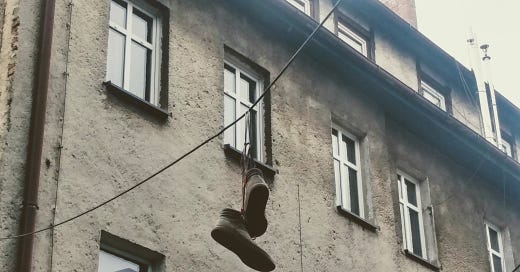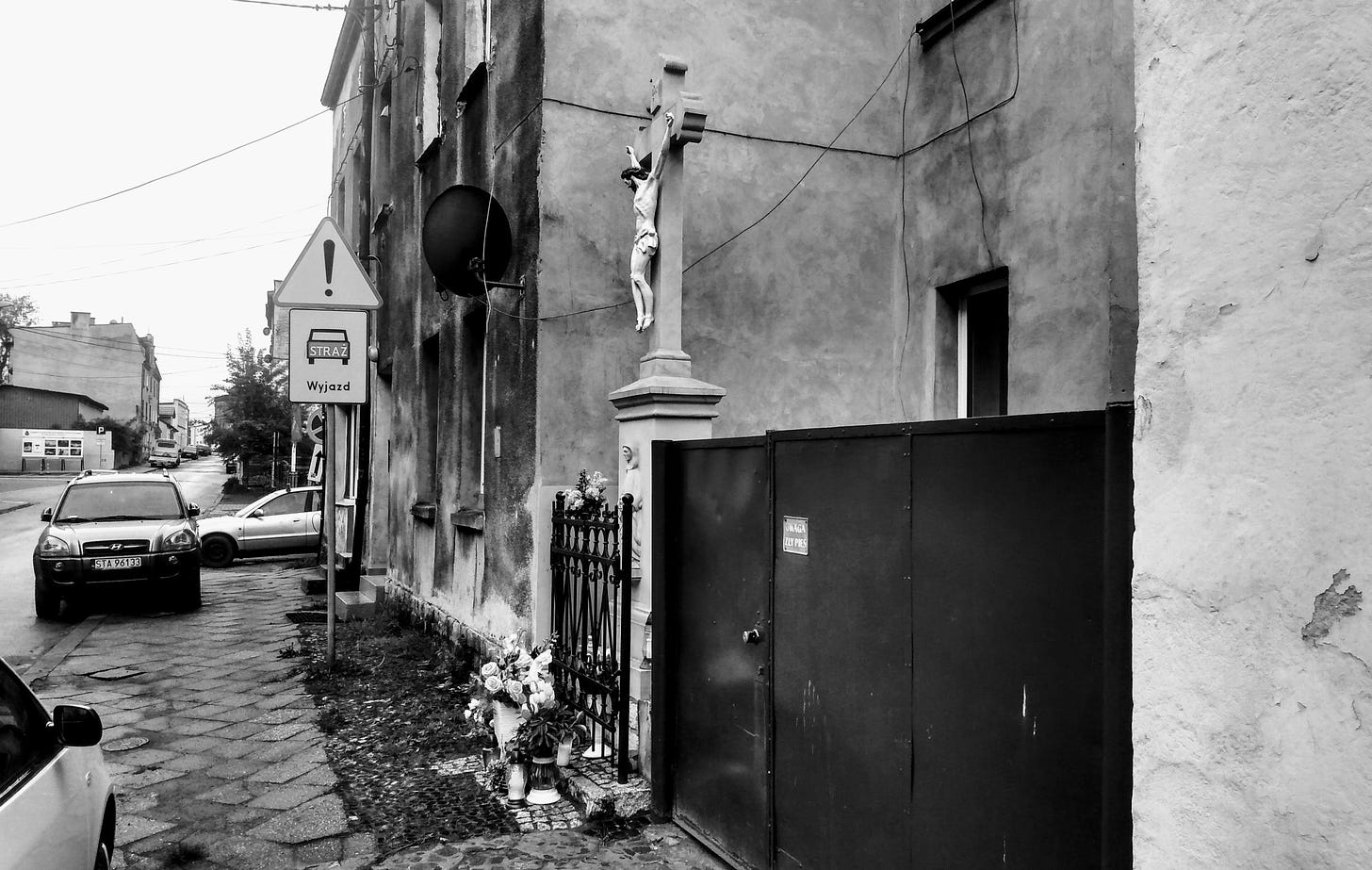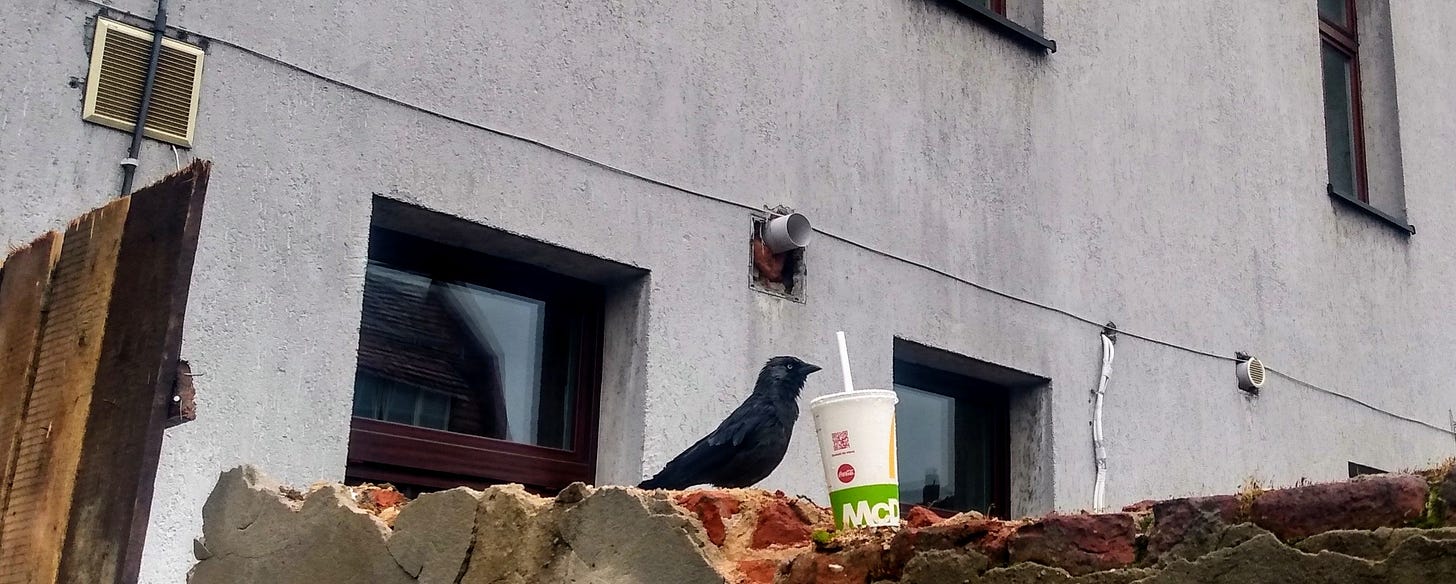"Possibly the Best Newsletter Ever Written In May By Someone Called Ben Sixsmith" Edition
Hello,
Obligatory shilling. This week I reviewed Sohrab Ahmari's case for traditionalism, The Unbroken Thread, for The Daily Caller.
I wrote for my paying subscribers about bodies, and the interplay between our mental and physical selves.
I also wrote about collecting my passport.
Toxic validation. Over at UnHerd, Ed West explores the trials and tribulations of the Duke and Duchess of Sussex and “toxic validation”:
[On social media], the most popular lifestyle declarations, in terms of retweets and likes, are almost always the most disastrous. They’re the ones where people tweet about breaking off workable romantic relationships over quite minor problems; ending a relationship with a family member over politics; pursuing a conflict with employers over relatively minor issues; even self-mutilation — all while being encouraged, praised and applauded by thousands of people.
One should always bear in mind that people on social media, from one's admirers to one's critics, are not heavily invested in one's success. The modern trend towards unfiltered self-exposure as a means of addressing emotional problems is less in the interests of the sufferer than the market. I am not sure who is in the Duke of Sussex's ear, for example, but the fact that their solution for his troubles just happens to be lucrative is terribly convenient.
Croako Haram? The leader of the Nigerian terrorist group Boko Haram has apparently died. Or has he? As one analyst said in 2015, he dies more times than an iPhone battery.
If you followed the conspiratorial underground in the noughties, you might remember the not entirely implausible claims that Osama Bin Laden had died in 2001 and that his legend was being sustained by various means of cinematic trickery. Think how much more plausible this would have been in a world of deepfakes and speech synthesis. Now, a wily terrorist organisation could keep its leader alive long after he has voyaged to Hell.
Madness by the Med. A diplomatic dispute between Morocco and Spain escalated to the point that the Moroccan government abandoned its attempts to stop migrants entering the Spanish enclave of Ceuta. Six thousand of them, many of them kids, crossed the border in a day. This vividly illustrates the potential chaos in the region. If you are paying subscriber, you can find my thoughts on the Mediterranean crisis here.
Finally, some good news? In the new issue of the interesting online magazine Works in Progress, Scott Alexander has a fascinating exploration of suicide and why the upswing in cases that many people, this author included, feared would take place as a result of the pandemic and lockdowns has not transpired. What the results of long-term consequences - unemployment, loneliness and loss - will be is another question.
A defence of decadence. Also in Works in Progress, Ryan Murphy makes the case that art is improving. It is a difficult argument to make. I applaud his attempt. But he is wrong. Murphy writes:
It ought to be a baseline assumption, if nothing else, that if we are making the choice for one thing over another it’s because it’s better for us.
No, I reject this assumption. Things can be more convenient, or more fashionable, or more immediately satisfying, or more addictive without being better.
Murphy also gets reductionist in his pursuit of that which can be quantified. He writes:
...in his book Everything Bad is Good for You, Steven Johnson demonstrates via diagram how the plots of television programs have become increasingly elaborate from Dragnet to The Sopranos.
I love The Sopranos. It is definitely not the case that everything new is worse than everything old. But while Tinker, Tailor, Soldier, Spy has a more simpler plot than Lost it has far better characters, better performances, a better atmosphere, and more thematic substance. Can I reduce that to data? No. But it is true.
The geometry of disaster. Geoff Shullenberger writes a smart, respectful, but not uncritical review of Niall Ferguson's DOOM:
In one chapter, he examines what he calls the “fractal geometry of disaster” — the manner in which a variety of disasters and failed responses to them contain within themselves a series of smaller disasters, often located “in the middle layer of the organization chart,” amid sclerotic bureaucracies that breed perverse incentives.
Watching without being watched. Becca Rothfeld writes about online stalking:
Although there is no overt sexual contact in Persona, the film often feels obscene. After a while, I realized that the flushing sense of hot violation came from studying Liv Ullmann’s face for a minute without interruption. It is jarring to look at someone unreservedly: usually, the people we observe look back.
Rothfeld's “stalking” entails observation as an end in itself rather than observation as an aspect of harassment. The latter is far more dangerous, obviously. Still, it is interesting how the Internet brings out our inner snoop. We can know a lot about another person without them knowing that we exist - solely on the basis of what they post online. This can be quite innocent. But such one-way relationships would only have been possible twenty-five years ago if someone had been peeping through your curtains - or you had been peering through theirs.
Spoilsport. Richard Hanania argues that UFOs probably aren't real.
Life after death. A compelling documentary about hardcore wrestling. (It is as grim as you would expect.)
Book report. I mentioned here that I was trying to write a novel. Actually, I think it will be three thematically related novelettes, the theme being the noughties. The most important thing is that I have not given up yet.
Have a lovely week,
Ben







